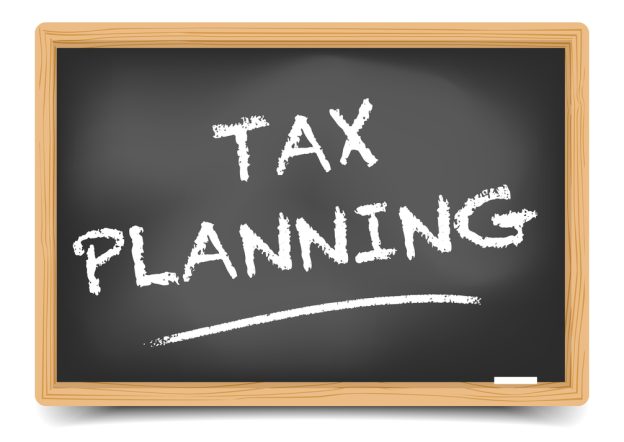
Selling on eBay without paying tax (or as little as possible) requires careful attention to HMRC guidelines and thoughtful planning.
The self employed £1,000 trading allowance offers casual eBay sellers significant flexibility, with income under this allowance typically free from income tax.
Smart pricing strategies, combined with systematic listing approaches, can help eBay sellers stay within tax-free limits while maximising profits.
If you are an eBay trader selling valuable items or using shared eBay accounts you should double check that you are following HMRC’s regulations correctly.
Though HMRC’s rules might seem complex, understanding these guidelines helps to keep your eBay income both profitable and tax-compliant.
With HMRC’s recent campaign to remind online traders (not just on eBay) about their potential tax obligations it’s worth finding out more about when you are expected to declare your online income.
Private eBay sellers should note that:
- eBay’s classification as a ‘private seller’ does not automatically guarantee tax-free status.
- HMRC assesses trading status based on patterns and intentions rather than solely on income levels.
- Personal items sold below their purchase price do not count towards taxable income.
- Selling valuable collectibles or antiques might trigger capital gains tax, especially when profits exceed initial purchase values.
- Maintaining accurate records remains essential for tax compliance.
- The trading allowance is granted in addition to the tax free personal allowance. This means if your eBay income is over the trading allowance tax might not have to be paid if your overall income is below both the personal and trading allowances combined.
Track your eBay sales properly to stay within tax-free limits
Managing your eBay sales volume strategically can help maintain tax-free status whilst maximising profits.
Through careful planning and systematic listing approaches, sellers can operate within HMRC’s guidelines effectively.
Systematic listing management helps prevent sudden spikes in sales that might push you over tax thresholds.
To do this you’ll need to accurately keep track of your sales and remember the trading allowance covers your entire self-employed income, including earnings from other casual work or side activities.
For joint accounts shared with family members, each individual benefits from their own £1,000 tax free trading allowance.
eBay selling tax tactics to consider
Should your total income from eBay approach £1,000 in any one tax year, pause listings temporarily or reduce prices to clear stock without exceeding limits.
Even with substantial collections, spacing out listings demonstrates casual selling patterns rather than business trading.
Timing your sales accordingly also helps maximise profits whilst staying within tax thresholds.
Other tips that can support tax efficiency and profit are:
- Check competitor pricing regularly.
- Monitor seasonal price fluctuations.
- Calculate all costs before setting prices and don’t forget about expenses like eBay fees, packaging materials and shipping costs.
- Don’t include trading personal possessions bought for personal use or unwanted gifts in your taxable income calculations.
Selling valuable items on eBay and capital gains tax
Special circumstances in eBay selling require extra attention to tax compliance.
From high-value items to shared accounts, understanding specific rules helps prevent unexpected tax obligations
Capital Gains Tax or CGT can apply (instead of income tax) to valuable personal possessions sold on eBay.
Individuals receive a capital gains tax allowance also known as the annual exempt amount in each tax year.
Items worth more than £6,000 might attract CGT, even when sold occasionally. HMRC exempts items with a limited lifespan of less than fifty years from CGT, for example watches remain exempt from CGT regardless of their value.
Key considerations for valuable items:
- Only pay CGT on profits above the threshold.
- Personal vehicles receive special exemptions.
- Keep proof of original purchase prices.
- Document any improvements or repairs.
For valuable items sold through another person’s account, both parties should maintain clear documentation.
The account holder becomes responsible for declaring income, even when selling on behalf of others.
Consider these safeguards for shared eBay accounts:
- Written agreements outlining responsibilities.
- Separate tracking systems for each user.
- Clear profit-sharing arrangements to avoid confusion.
HMRC’s digital revolution transforms tax collection
HMRC’s modernisation programme marks a significant shift towards digital tax administration aiming to transform into a quicker, fairer and more modern organisation through innovative technology solutions like making tax digital for income tax self assessment (MTD for ITSA).
The policy shift reflects the government’s recognition of the growing side hustle economy, which saw significant expansion during the pandemic when nearly one-fifth of people reportedly starting additional income streams.
Part of the on-going developments in the online trading space is reflected in the proposed increase to the self assessment tax return reporting threshold for self employed individuals.
Keeping up to date with any tax related adjustments is recommended to keep your online side hustle on the right side of HMRC’s regulations.
From 31 January 2025, digital platforms like eBay must submit their first reports to HMRC declaring online seller information.
HMRC has announced that they have allocated £39.9 million towards identifying discrepancies between income reported from digital platforms and tax returns.
They have dedicated a team of 24 experts to scrutinise these records, launching investigations where necessary.





